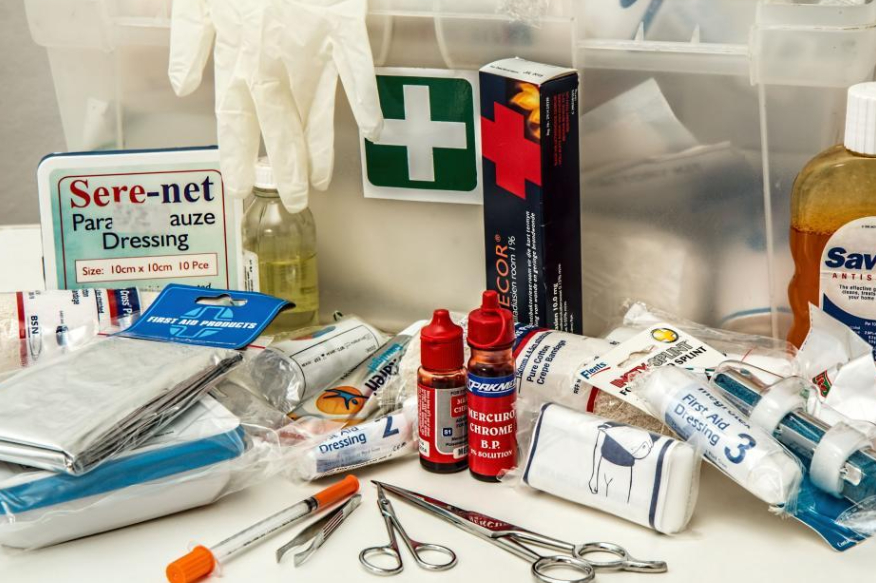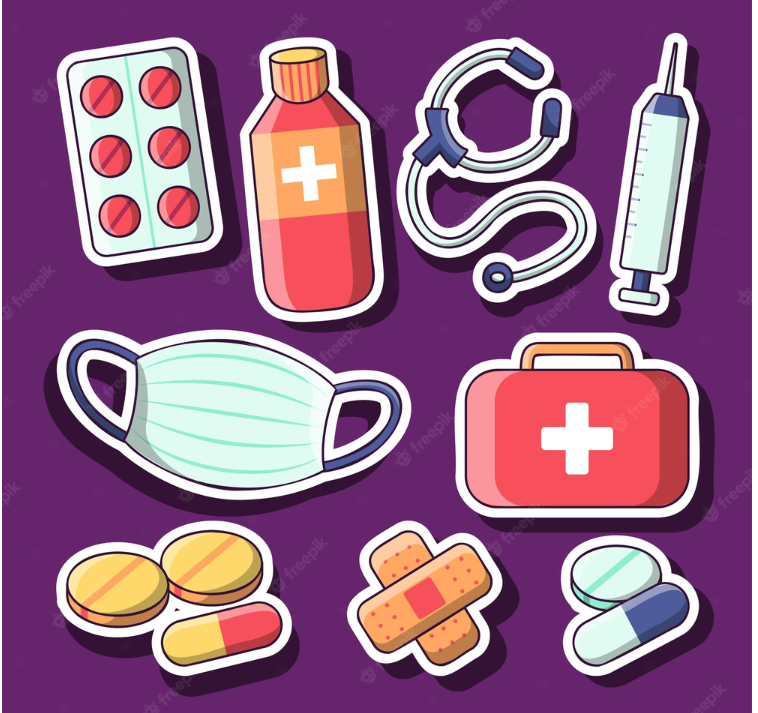The World’s Best Home Health Products

Introduction
Today’s Review writing on the world of Home Health Products. In recent years, the health and wellness industry has seen a significant surge in demand for products that can be used conveniently at home. With busy lifestyles, growing awareness of self-care, and advancements in technology, the market for home health products has expanded rapidly. These products offer individuals the opportunity to monitor, manage, and improve their health from the comfort of their homes. This article delves into the diverse range of home health products available today, highlighting their benefits and functionalities.

Home health services can encompass a variety of activities
Home health refers to the provision of healthcare services and medical assistance to individuals within the comfort of their own homes. It involves a range of medical, therapeutic, and supportive services that are typically provided by healthcare professionals or caregivers. Home health services are designed to accommodate patients who are recovering from illnesses, managing chronic conditions, or require assistance with activities of daily living due to age, disability, or other health-related challenges.
Home health services can encompass a variety of activities, including:
1. Medical Care: Skilled healthcare professionals such as nurses, doctors, and therapists may provide medical care at home. This can include administering medications, wound care, monitoring vital signs, and managing medical equipment.
2. Therapy Services: Physical therapy, occupational therapy, and speech therapy can be offered in a home setting to aid in recovery and improve mobility, strength, and communication skills.
3. Personal Care: Home health aides or caregivers can assist with activities of daily living, such as bathing, dressing, grooming, and meal preparation.
4. Monitoring and Assessment: Home health services often involve regular monitoring and assessment of a patient’s condition. This can include checking blood pressure, blood sugar levels, and other relevant health indicators.
5. Rehabilitation: After surgery or a medical event, individuals may undergo rehabilitation at home to regain their strength and mobility under the guidance of professionals.
6. Palliative and Hospice Care: For individuals with terminal illnesses or those requiring end-of-life care, palliative and hospice services can be provided at home to ensure comfort, pain management, and emotional support.
7. Medical Equipment and Supplies: Home health services can include the provision of medical equipment and supplies such as oxygen therapy equipment, mobility aids, and wound care materials.
8. Education and Training: Caregivers and family members may receive training on how to provide care, manage medications, and handle medical equipment to ensure the patient’s safety and well-being.
Home health services offer several benefits, including:
Comfort and Familiarity: Patients can recover in a familiar and comfortable environment, which can contribute to their overall well-being.
Reduced Hospitalization: Home health services can help prevent unnecessary hospitalizations by providing timely medical attention and support at home.
Cost-Effectiveness: In many cases, home health services can be more cost-effective than prolonged hospital stays or nursing home care.
Personalized Care: Care plans are often tailored to each individual’s unique needs and preferences.
Emotional Support: Being surrounded by loved ones and familiar surroundings can provide emotional support, which is crucial for recovery.
Independence: Home health services aim to help patients maintain their independence and quality of life as much as possible.
It’s important to note that the availability and range of home health services can vary based on location, healthcare regulations, and individual patient needs. The decision to opt for home health services should be made in consultation with healthcare professionals to ensure the most appropriate care plan for the individual’s condition and circumstances.
Best Home Health Products Here:
1. Monitoring Devices
- Blood Pressure Monitors: These devices allow users to track their blood pressure levels regularly, which is essential for managing conditions like hypertension. They come in various forms, including wrist monitors, arm cuffs, and even smartwatch integration.

Blood Pressure Monitor Device
- Glucose Monitors: People with diabetes can monitor their blood glucose levels using portable devices that require a small blood sample. Continuous glucose monitors provide real-time readings and trend analysis.
- Pulse Oximeters: These pulse oximeter devices measure blood oxygen saturation and pulse rate, providing vital information for respiratory health assessment, especially during exercise or sleep.
2. Fitness and Activity Trackers
- Smartwatches: Beyond telling time, smartwatches can track steps, heart rate, and sleep patterns, and even offer guided workouts, helping users stay active and motivated.
- Activity Bands: These lightweight wearables focus primarily on fitness tracking, providing insights into steps taken, calories burned, and active minutes.

3. Telemedicine Solutions
- Remote Consultation Platforms: Various apps and platforms connect individuals with healthcare professionals for virtual consultations, saving time and effort while ensuring access to medical advice.
- Medical Wearables: Wearable devices with health-monitoring capabilities can transmit real-time data to healthcare providers, enabling more accurate assessments and personalized treatment plans.
4. Home Testing Kits
- DNA Testing Kits: These DNA Testing kits provide insights into ancestry, genetic traits, and potential health risks, helping individuals make informed decisions about their lifestyles.
- Food Sensitivity Tests: Home-based kits can identify potential food sensitivities, aiding in the management of digestive issues and allergies.
5. Home Therapy Devices
- TENS Units: Transcutaneous Electrical Nerve Stimulation (TENS) units deliver low-voltage electrical currents to alleviate pain and aid in muscle recovery.
- Light Therapy Devices: These devices emit specific wavelengths of light to address conditions like seasonal affective disorder (SAD) or promote skin rejuvenation.

LifePro Infrared Light Therapy Device
6. Air Quality Monitors
- Indoor Air Quality Monitors: These devices assess indoor air quality by measuring pollutants like particulate matter, VOCs, humidity, and temperature. They can help individuals create healthier living environments.
7. Smart Scales
- Body Composition Analysis: Smart scales not only measure weight but also provide insights into body fat percentage, muscle mass, bone density, and hydration levels.
8. Home Exercise Equipment
- Smart Fitness Equipment: From interactive stationary bikes to AI-guided home gyms, these products offer personalized workout experiences tailored to individual fitness goals.

Sunny Health & Fitness Mini Stepper
What are the rules for using home health products?
Using home health products effectively and safely requires adherence to certain rules and guidelines to ensure optimal outcomes and minimize risks. Here are some important rules to consider when using home health products:
1. Consult with Healthcare Professionals:
Before using any home health product, it’s crucial to consult with your healthcare provider. They can offer personalized advice based on your medical history, current condition, and treatment plan. Your healthcare provider can recommend specific products, guide you on proper usage, and help you understand potential interactions or contraindications.
2. Follow Instructions Carefully:
Carefully read and adhere to the instructions and guidelines provided by the manufacturer along with the product. This includes information on proper usage, maintenance, cleaning, storage, and any necessary precautions. Using a product incorrectly can lead to ineffective results or even harm.
3. Personalization and Individual Needs:
Choose home health products that align with your specific health needs and goals. Everyone’s health requirements are unique, so ensure that the product addresses your concerns and suits your condition. Avoid using products that are not recommended by healthcare professionals or are not suitable for your situation.
4. Quality and Safety:
Select products from reputable manufacturers and suppliers. Look for products that have been approved by relevant regulatory bodies (such as the FDA in the United States) and have positive user reviews. Poor-quality products may not provide accurate results or could pose health risks.
5. Monitoring and Tracking:
For devices that involve tracking health parameters (e.g., blood pressure monitors, glucose monitors, fitness trackers), maintain a record of the readings over time. This helps you and your healthcare provider track trends and make informed decisions about your health management.
6. Maintenance and Upkeep:
Follow the recommended maintenance schedule for your home health products. Regular cleaning, calibration, and battery replacement (if applicable) can ensure accurate and reliable performance.
7. Hygiene and Sterilization:
For products that come into direct contact with your body (e.g., wound care products, medical equipment), practice proper hygiene and sterilization. This prevents infections and complications.
8. Communication with Healthcare Professionals:
Share the data and information collected using home health products with your healthcare provider. They can use this information to assess your progress, adjust treatment plans, and provide guidance.
9. Monitoring Changes:
Pay attention to any changes in your condition while using home health products. If you notice unexpected fluctuations or worsening symptoms, contact your healthcare provider promptly.
10. Respecting Limitations:
Understand the limitations of home health products. While they can provide valuable insights and support, they are not a replacement for professional medical care. If your condition requires immediate medical attention, seek help from a healthcare facility.
11. Privacy and Security:
If using digital or smart home health products that transmit data electronically (e.g., telemedicine platforms, fitness trackers), ensure that your data is protected and secure. Use strong passwords, enable privacy settings, and choose products from reputable providers.
12. Disposal and Environmental Impact:
Dispose of products and related materials (such as used testing strips or packaging) according to local regulations and environmental guidelines. Some products, especially medical waste, may require special disposal procedures.
By adhering to these rules, you can make the most of home health products while prioritizing your safety, well-being, and overall health management. Remember that open communication with your healthcare provider is essential throughout your journey of using home health products.

Buying Guide
Making Informed Choices for Your Well-being
Whether you’re looking to manage a chronic condition, monitor your health, or simply promote overall well-being, the world of home health products offers a wide range of options. Nonetheless, selecting the appropriate option necessitates thorough contemplation and research. This buying guide will help you navigate the process, ensuring you select products that align with your needs and provide the desired outcomes.
1. Identify Your Needs:
Before you begin your search, identify your specific health needs and goals. Are you looking to monitor blood pressure, manage diabetes, track fitness, or address a particular health concern? Knowing your objectives will guide your product selection.
2. Consult Healthcare Professionals:
Always consult your healthcare provider before purchasing any home health product. They can offer insights into which products are most suitable for your condition and provide recommendations based on your medical history and treatment plan.
3. Research Reputable Brands:
Choose products from well-established and reputable brands. Look for products that have been approved by relevant regulatory authorities, such as the FDA or CE mark, which indicates compliance with safety and quality standards.
4. Read Reviews and User Feedback:
Read reviews from other users who have used the product you’re considering. Reviews can offer insights into the product’s effectiveness, reliability, and ease of use. Nevertheless, it’s important to note that individual experiences can differ.
5. Consider Features and Specifications:
Evaluate the features and specifications of the product. For example, if you’re considering a blood pressure monitor, check for features like memory storage, cuff size options, and ease of reading the display.
6. Accuracy and Reliability:
For health monitoring devices, accuracy is crucial. Look for products with proven accuracy through clinical testing. Inaccurate readings can lead to mismanagement of health conditions.
7. Ease of Use:
Choose products that are user-friendly and intuitive. Complicated setups or confusing interfaces can discourage consistent usage.
8. Compatibility and Connectivity:
If the product connects to a mobile app or a computer, ensure it’s compatible with your devices. Connectivity can provide valuable data insights and make tracking easier.
9. Warranty and Customer Support:
Check the product’s warranty period and the availability of customer support. A reliable warranty and responsive customer service can offer peace of mind if you encounter any issues with the product.
10. Privacy and Data Security:
For products that collect and transmit data, prioritize privacy and security. Ensure the product adheres to data protection regulations and offers options for securing your personal information.
11. Price vs. Value:
While budget considerations are important, prioritize value over the lowest price. A slightly higher-priced product that meets your needs and offers better features may provide better long-term benefits.
12. Return and Exchange Policies:
Familiarize yourself with the seller’s return and exchange policies. In case the product doesn’t meet your expectations or has defects, you’ll want to know your options for returning or exchanging it.
13. Trial Periods:
Some companies offer trial periods during which you can test the product and return it if it doesn’t meet your expectations. This can be especially useful for products with a significant cost.
14. User-Friendly Instructions:
Ensure the product comes with clear and easy-to-understand instructions. Proper usage is essential for accurate results and safety.
15. Environmental Considerations:
When possible, opt for products with minimal environmental impact. Look for products with eco-friendly packaging and consider the lifecycle of the product.
16. Avoid Impulse Buying:
Take your time to research and consider your options. Avoid making hasty decisions based on sales or promotions.
Remember that your health is a priority, so investing time in choosing the right home health products is worthwhile. By following this buying guide and involving your healthcare provider in the decision-making process, you can make informed choices that support your well-being and contribute to a healthier lifestyle.
FAQ
Frequently Asked Questions (FAQ) about Home Health Products
Navigating the world of home health products can bring up various questions. Here are answers to some common queries to help you better understand these products and their usage:
1. What are home health products?
Home health products are devices, tools, and equipment designed to help individuals monitor and manage their health and well-being from the comfort of their homes. These products encompass a wide range of items, including monitoring devices, fitness trackers, telemedicine platforms, therapy equipment, and more.
2. Are home health products safe to use?
When used as directed and under the guidance of healthcare professionals, most home health products are safe. However, it’s important to consult your healthcare provider before using any new product to ensure it’s suitable for your specific health condition and needs.
3. Do home health products replace medical care?
Home health products can complement medical care, but they do not replace the need for professional medical advice. While they provide valuable data and insights, healthcare professionals are essential for interpreting results, making diagnoses, and creating treatment plans.
4. How do I choose the right home health product for me?
Identify your specific health needs and goals, consult your healthcare provider, research reputable brands, read user reviews, consider features, accuracy, and ease of use, and weigh the value of the product against its price. It’s also important to ensure the product aligns with your medical condition.
5. Are home health products covered by insurance?
In some cases, health insurance plans may cover certain home health products, especially those deemed medically necessary. Reach out to your insurance provider to gain a clear understanding of the coverage options available to you.
6. Can I trust the accuracy of home health product readings?
Accurate readings depend on the quality and calibration of the product. Choose products from reputable brands with proven accuracy and consider regular calibration if necessary. Consulting healthcare professionals can help validate the accuracy of readings.
7. How often should I use home health products?
The frequency of use depends on the product and your health needs. Monitoring devices like blood pressure monitors may require regular checks, while fitness trackers can be used daily. Your healthcare provider can offer guidance on usage frequency.
8. Can I share the data from home health products with my healthcare provider?
Yes, sharing data with your healthcare provider can be valuable for assessing your health status and making informed decisions. Many modern home health products allow you to sync and share data with healthcare professionals.
9. Are there risks associated with home health products?
While most home health products are designed with safety in mind, there are potential risks. These can include inaccurate readings, device malfunctions, or misinterpretation of results. Consult your healthcare provider and follow product instructions to minimize risks.
10. Can I return a home health product if it doesn’t meet my expectations?
Return policies vary by manufacturer and retailer. Some products may have trial periods during which you can return the product if it doesn’t meet your expectations. Always review the return and exchange policies before making a purchase.
11. Do I need technical expertise to use home health products?
Most home health products are designed to be user-friendly, requiring minimal technical expertise. However, reading and following the provided instructions is important to ensure proper usage.
12. Can home health products be used for children and the elderly?
Yes, many home health products are suitable for individuals of all ages. However, specific products may have age limitations or recommendations. Always consider the individual’s needs and consult a healthcare professional if needed.
Remember that your health and safety are paramount. Always consult healthcare professionals, read product instructions, and make informed decisions when using home health products to achieve the best possible outcomes for your well-being.

Conclusion
Home health products have revolutionized the way individuals approach their well-being. By facilitating regular monitoring, enabling telemedicine, and providing access to valuable health data, these products empower individuals to take charge of their health from the comfort of their homes. As technology continues to advance, the world of home health products is likely to expand further, offering even more sophisticated and user-friendly solutions for improving and maintaining overall health and wellness. However, it’s essential to consult healthcare professionals before making any major health-related decisions based on the information provided by these products.
You can see The Best Brand Cosmetics. Maybe you like it. Products Details Here



